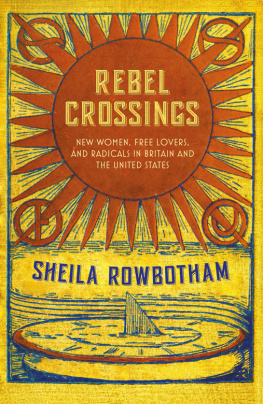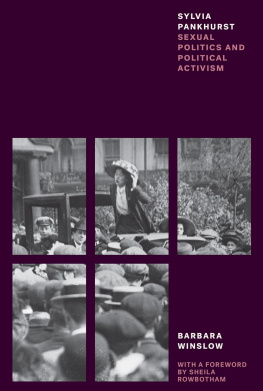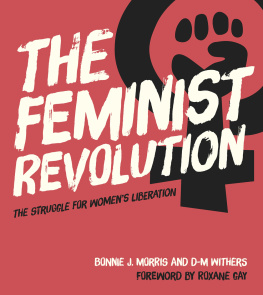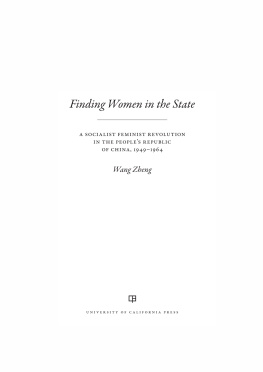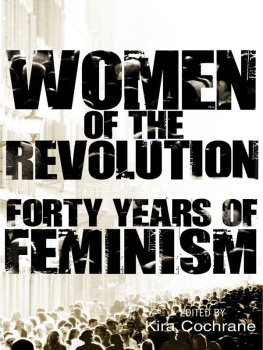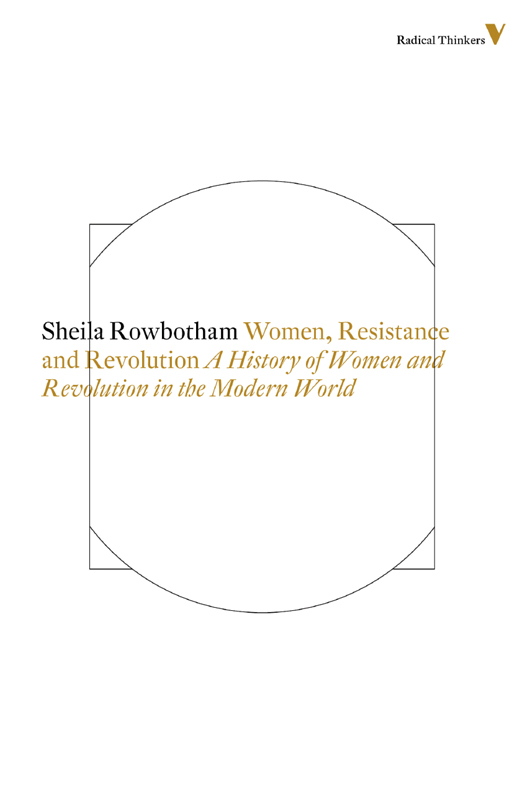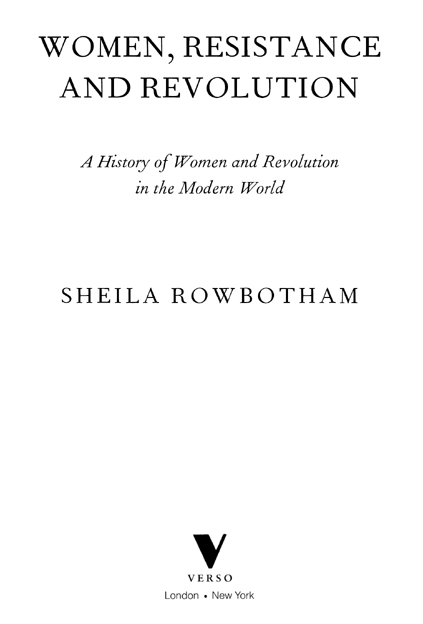This edition published by Verso 2014
First published by Vintage Books 1974
Sheila Rowbotham 1974, 2014
All rights reserved
The moral rights of the author have been asserted
Verso
UK: 6 Meard Street, London W1F 0EG
US: 20 Jay Street, Suite 1010, Brooklyn, NY 11201
www.versobooks.com
Verso is the imprint of New Left Books
ISBN-13: 978-1-78168-146-6
eISBN (UK): 978-1-78168-509-9
eBook ISBN: 978-1-78168-200-5
British Library Cataloguing in Publication Data
A catalogue record for this book is available from the British Library
Library of Congress Cataloging-in-Publication Data
A catalog record for this book is available from the Library of Congress
v3.1
Contents
Acknowledgements
The idea of writing this book came partly out of discussions with Arielle Aberson who was killed very soon after in a car crash, and it is in her memory.
For help in finding some of the sources, thanks to Sue Finch, Christopher Hill, Thomas Hodgkin, Bessie Leigh, Betty Patterson, Penny Pollit, Alan Rooney, Marion Sedley, Wilhelmina Schroeder, Ken Weller, Barbara Winslow.
Also, for permission to consult their libraries: the Institute for Social History, Amsterdam, and the Society for Anglo-Chinese Understanding, and the T.U.C.
For laboriously reading the manuscript and telling me what they thought about it, love and gratitude to Arsenal Womens Liberation Workshop Group, Stephen Bodington, Sharon Collins, Suzie Fleming, Roberta Hunter Henderson, Vivien Lewes, Laura Mulvi, Neil Middleton, Juliet Mitchell, Jean McCrindle, Teresa Moriarty, Bob Rowthorn, Anne Scott, Amanda Sebestyen, Dorothy and Edward Thompson, Micheline Victor, Lucy Waugh and David Widgery, who also lived with it. But I didnt take notice of all their criticism and they are not responsible for the final version.
Thanks to Dr Michael Leibson, the cake stall on Ridley Road, Starcross Comprehensive, and the Workers Education Association who gave me the employment to survive while I was writing it, and to the people in womens liberation and the socialist movement who gave me the confidence to do it.
I am grateful for permission to quote from Elizabeth Sutherland, The Youngest Revolution, Pitman & Sons Ltd; R. A. J. Schlesinger, Changing Attitudes in Soviet Russia, Routledge & Kegan Paul Ltd and Humanities Press; Chin Ping Mei, The Adventurous History of Hsi Men and his Six Wives, translated by Arthur Waley, The Bodley Head; Edith Thomas, The Women Incendiaries, Editions Gallimard; M. Kent Geiger, The Family in Soviet Russia, Harvard University Press; Maxwell Bodenheim, To a Revolutionary Girl, in New Masses, an Anthology, International Publishers; Jessica Smith, Women in Soviet Russia, Vanguard Press Inc.; Felix Greene, description of a divorce trial in China, The Wall has Two Sides, Jonathan Cape; Helen Foster Snow, Women in China, Mouton; Keith Thomas, Women and the Civil War Sects, Past and Present; Francis Fytton, Manifestation, Stand magazine; Roxane Witke, Mao Tse-tung, Women and Suicide, China Quarterly; Society for Anglo-Chinese Understanding publications; Shrew Collective; London Womens Liberation Workshop; Comment; the International Institute for Social History for use of the minutes of the East London Federation of the Suffragettes; Sheffield Public Library for use of the Carpenter Collection. And to the workers of the British Museum who searched in the stacks of the B.M. to find them all for me.
Introduction
This is not a proper history of feminism and revolution. Such a story necessarily belongs to the future and will anyway be a collective creation. Instead I have tried to trace the fortunes of an idea. It is a very simple idea, but one with which we have lost touch, that the liberation of women necessitates the liberation of all human beings. I have tried to describe the circumstances in which such a notion could come about, and indicate something of how it has manifested itself. I have tried to pursue it as a living reality as it came into and out of the lives of particular men and women, and as a political reality as they organized to act upon it. I wanted to communicate the manner in which it has changed and appeared in a different guise, assuming new shapes when it became practical. Even so there is much which I have not mentioned and much that I do not know and more that I couldnt fit in. It will be a useful book only if it is repeatedly dismantled and reconstructed as part of a continuing effort to connect feminism to socialist revolution. It contains no blueprint for what we should do in the future; it simply puts together some of the things we have already done, so that we can understand a little more clearly where we are starting from. It is a tentative first step towards correcting the masculine bias in the story we have inherited of our revolutionary past.
Women have come to revolutionary consciousness by means of ideas, actions and organizations which have been made predominantly by men. We only know ourselves in societies in which masculine power and masculine culture dominate, and can only aspire to an alternative in a revolutionary movement which is male defined. We are obscured in brotherhood and the liberation of mankind. The language which makes us invisible to history is not coincidence, but part of our real situation in a society and in a movement which we do not control. Our subordination is so deeply internalized that it has taken womens liberation to reveal it. The pain, emotional violence, and intense rejection of the male-defined revolutionary movement, which some women have expressed as part of a specifically feminist consciousness, are inseparable from that invisibility.
There are two immediate responses to this pain. One is subservient acquiescence to the male revolutionarys definition of our role. Out of loyalty or the need to preserve unity we allow our daring and imagination, so briefly and recently released, to be once again restricted and held down, contenting ourselves with token acknowledgement. The other response is an angry denial that their movement is anything to do with us. We decide to seek our new selves alone. While the first lets go of the explicitly female consciousness and pretends that the specific oppression of women does not exist, the second isolates female consciousness from any other movement for liberation and pretends that men are not oppressed in the world outside.
The paralysis of a male-defined revolutionary movement is as evident as the paralysis of a consciousness which can comprehend only the liberation of women. Both are caught in their own particularity. The attempt to touch, recognize and communicate the effort to go beyond this paralysis in the past is part of the task of working it through in theory and practice in the future.
Without a movement as a reference point, without the ideas expressed in that movement, and without the constant support and help of the women I know in womens liberation, I would never have written more than a fragment of this. Womens liberation brings to all of us a strength and audacity we have never before known.
I am not however speaking for anyone. What I write is simply a contribution to a permanent communication, which comes from me personally but only exists because of other women. An individual woman who appears as the spokeswoman for the freedom of all women is a pathetic and isolated creature. She is inevitably either crushed or contained as a sexual performer. No woman can stand alone and demand liberation




